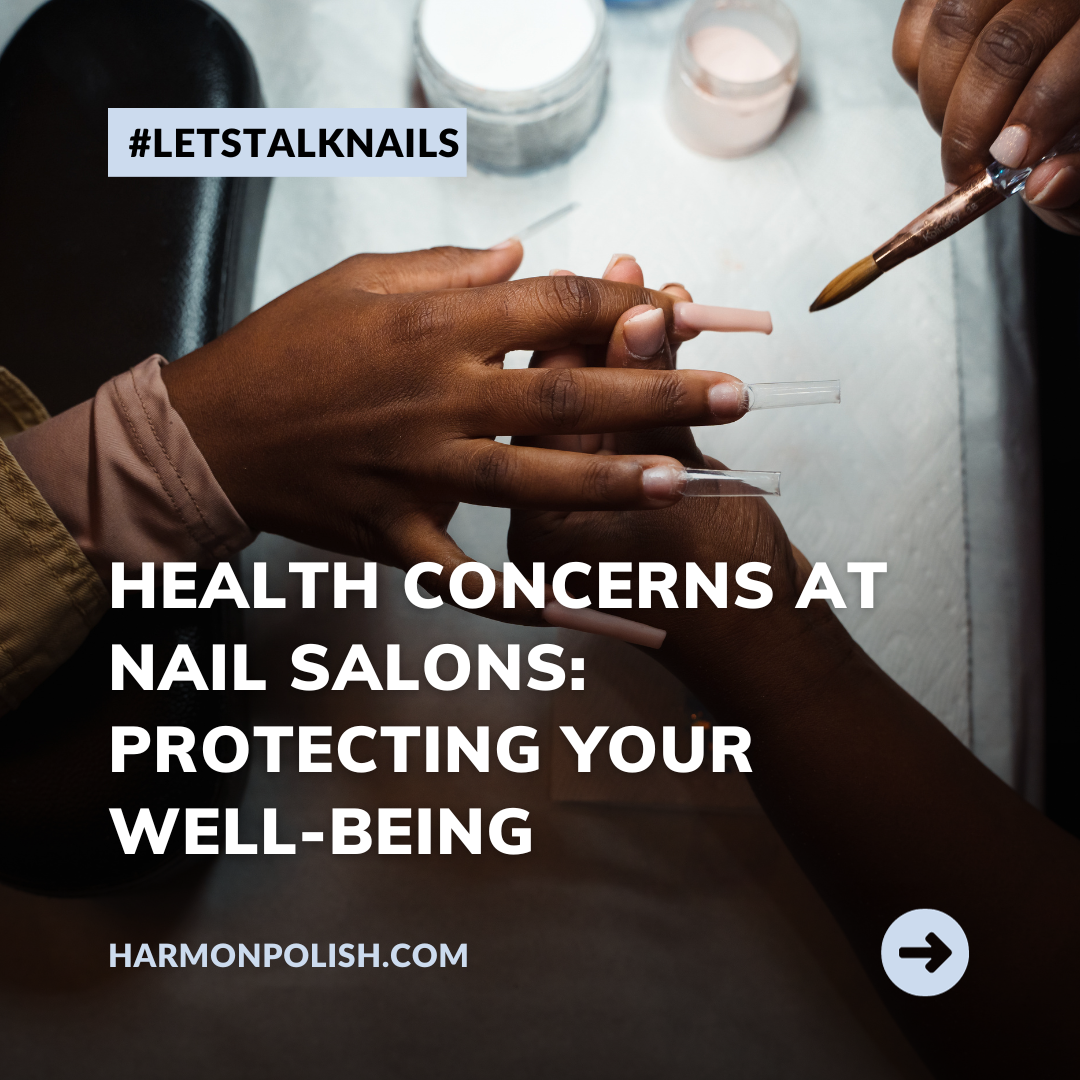
Nail salons have become a popular destination for individuals seeking self-pampering and beautification. However, beneath the shimmering nail polishes and relaxing massages lies a set of health concerns that often go unnoticed. In this blog, we'll explore some of the potential health risks associated with nail salons and provide tips on how to protect your well-being.
Inadequate Ventilation:
One of the most common health concerns in nail salons is inadequate ventilation. The fumes from nail polish, nail polish remover, and other chemicals used can be harmful when inhaled over an extended period. Prolonged exposure to these toxins may lead to respiratory problems and other health issues.
Tip: Choose a salon that prioritizes proper ventilation and consider wearing a mask to minimize inhalation of fumes.
Inadequate Sterilization:
Proper sterilization and cleanliness are crucial in nail salons. The tools and equipment used should be sanitized between clients to prevent the spread of infections and diseases, such as fungal or bacterial nail infections.
Tip: Ask your nail technician about their sterilization procedures and look for salons that have visible and transparent hygiene protocols.
Allergic Reactions:
Nail products often contain a variety of chemicals and allergens that can cause skin reactions. Some individuals may develop allergies or sensitivities to nail polishes, acrylics, or other products used in salons, leading to skin irritations, redness, or itching.
Tip: If you have sensitive skin or allergies, inform your technician and ask for hypoallergenic or chemical-free products.
UV Exposure:
Many nail salons use UV lamps to cure gel nails. Repeated exposure to UV rays can increase the risk of skin damage and potentially lead to premature aging and an increased risk of skin cancer.
Tip: Protect your hands by applying sunscreen or wearing UV-protective gloves during UV curing.
Unqualified Technicians:
Not all nail technicians are properly trained and licensed. Inexperienced or unqualified technicians may lack the knowledge to provide a safe and healthy salon experience.
Tip: Verify the qualifications and certifications of your nail technician and consider reading reviews or asking for recommendations.
Long-Term Nail Damage:
Frequent use of nail extensions, acrylics, or gels can weaken natural nails, making them brittle and more susceptible to breakage. Over time, this can lead to long-term nail damage.
Tip: Give your natural nails a break between nail enhancements to allow them to recover and breathe.
Conclusion:
Nail salons can be a delightful escape for self-care and pampering, but it's essential to be aware of potential health concerns. By choosing reputable salons, asking questions, and taking precautions, you can enjoy your nail treatments without compromising your well-being. Your health and safety should always be a top priority, and it's possible to have both beautiful nails and good health when you take the necessary steps to protect yourself at the salon.




